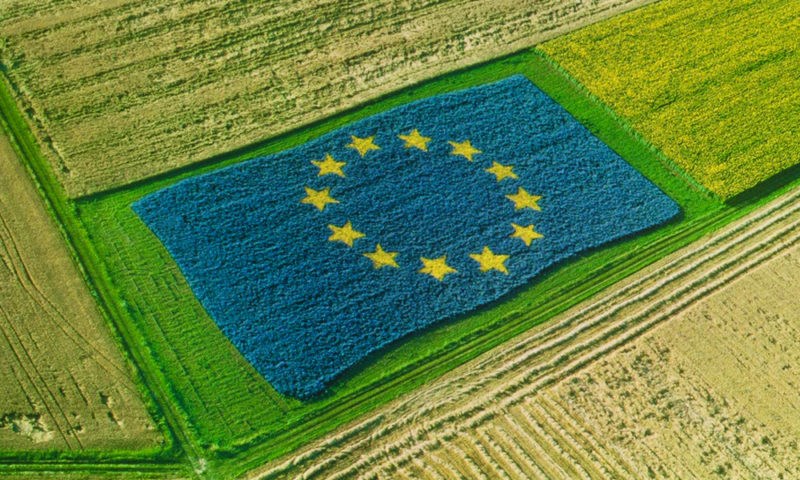
Moldova accelerates agricultural integration into European Union: major progress in legislative harmonization and modernization of key sectors
The Republic of Moldova is steadily advancing in the process of legislative harmonization and European integration in the fields of agriculture, rural development, and food safety. According to the report presented today by acting Minister of Agriculture and Food Industry (MAIA) Ludmila Catlabuga, our country has made significant progress in alignment with the European Union's acquis, managing three of the most complex negotiation chapters.
The Ministry of Agriculture and Food Industry recently completed bilateral screening sessions with the European Commission, evaluating Moldova's readiness for accession. As a result, authorities have accelerated the transposition of European legislation by implementing structural and economic reforms in strategic sectors.
"Moldovan agriculture is closer to European standards than ever. We have strengthened the regulatory framework, liberalized markets, and created real conditions for the development of modern, sustainable, and competitive agriculture," stated Ludmila Catlabuga.
According to the head of MAIA, normative acts have been adopted to strengthen animal health, agro-food product safety, and official control of the food chain, ensuring the sector's sustainability and competitiveness. Moreover, the activity of small producers and agrotourism pensions has been simplified, facilitating their market access and reducing administrative burdens.
With the support of development partners, significant investments have been made, such as the construction of the first animal by-product processing plant to reduce environmental impact; the creation of the Veterinary Medical Center at the Faculty of Veterinary Medicine in Chisinau; and the inauguration of seven modern laboratories at the Technical University of Moldova.
The updated legislative framework supports the development of sustainable horticulture, the growth of safe domestic production, and the expansion of exports. Regulations in the field of phytosanitary products and fertilizers ensure fair competition, public health protection, and the sustainable use of treatment substances.
"By adopting regulations on organic production, a clear system of certification and labeling has been created, excluding the use of genetically modified organisms. These measures increase Moldovan producers' access to foreign markets and strengthen the country's reputation as a supplier of safe and eco-friendly products," states the acting minister.
Additionally, with the adoption of the new Land Code, the Republic of Moldova has modernized the land record system and clearly regulated the management of pastures, meadows, and irrigation systems. Conditions for financing land improvement projects and the development of protective forest belts have been created.
With the support of international partners – IFAD, EIB, the World Bank, together with the Moldsilva Agency – programs have been implemented for soil conservation, the expansion of irrigation, and the restoration of degraded lands.
"Legislative harmonization actions in the agricultural, livestock, phytosanitary, and land fields strengthen Moldova's position as an active and determined candidate state to reach European Union standards. All these efforts have a common goal – creating modern, sustainable, and European agriculture that benefits farmers, consumers, and the national economy," summarized Ludmila Catlabuga.
Moldova, Albania establish joint actions to prepare for EU accession
Exchange of best practices between Moldova and Spain on advancing EU accession negotiations discussed in Chișinău
Moldova opens door to Romanian investors: up to 75 per cent financial support for industrial projects
Moldova, case study for EU in face of Kremlin's hybrid war; MEP says it is essential to learn from Moldova's experience
EU–Moldova: Parliamentary Committee calls for opening accession negotiations on three clusters
Deputy PM says Moldova ready to advance in EU accession negotiations
Moldovan Presidency's special envoy for European affairs says Nordic countries see Moldova as part of European family
EU-Moldova Association Committee convenes in Chisinau: accession negotiations on agenda
Moldova, Hungary open new chapter of agricultural cooperation in context of European integration
Moldova's progress, European expertise discussed with French officials
EU increases financial support for Moldova in 2026 European budget
Six cities of Moldova receive equipment for quick emergency response on behalf of EU
Moldova's parliament fully committed to European integration
Moldovan deputy PM says Moldova must prove political maturity for EU accession
Over 600 lyceum pupils of Moldova to help middle school graduates prepare for math exam
Deputy PM for reintegration has meeting with Ambassador of Poland to Moldova
Police label incident at church in central Moldova village as provocation; details on dispute over usage rights
Moldovan Prime Minister held farewell meeting with Ambassador of the Kingdom of Saudi Arabia
Saudi Arabia’s Ambassador awarded Diplomatic Merit Medal at end of mandate
Good news for students willing grade 10 ex officio in foreign language baccalaureate exam: Moldovan Education Ministry updates methodology
VIDEO // Agriculture Minister: Agri-food sector – strategic pillar of Moldova’s economy, with real development potential
Prime Minister met with Member of German Bundestag
Passenger air traffic in 2025: Eugen Doga – Chișinău International Airport among Europe’s top performers
Termoelectrica submitted request to ANRE to adjust heat energy tariff
Spring Festival to be celebrated in Chișinău with artistic performance
Over 120 schools held online classes on Monday
VIDEO // Government Secretary General: Unified Service Delivery Centers to be expanded to all localities, especially where town halls amalgamated
Nicolae Testemițanu USMF professors on training mission at University of Rouen
Winter conditions on national roads: partly covered with ice or snow
Speaker rejects claims about alleged arms production in Moldova

